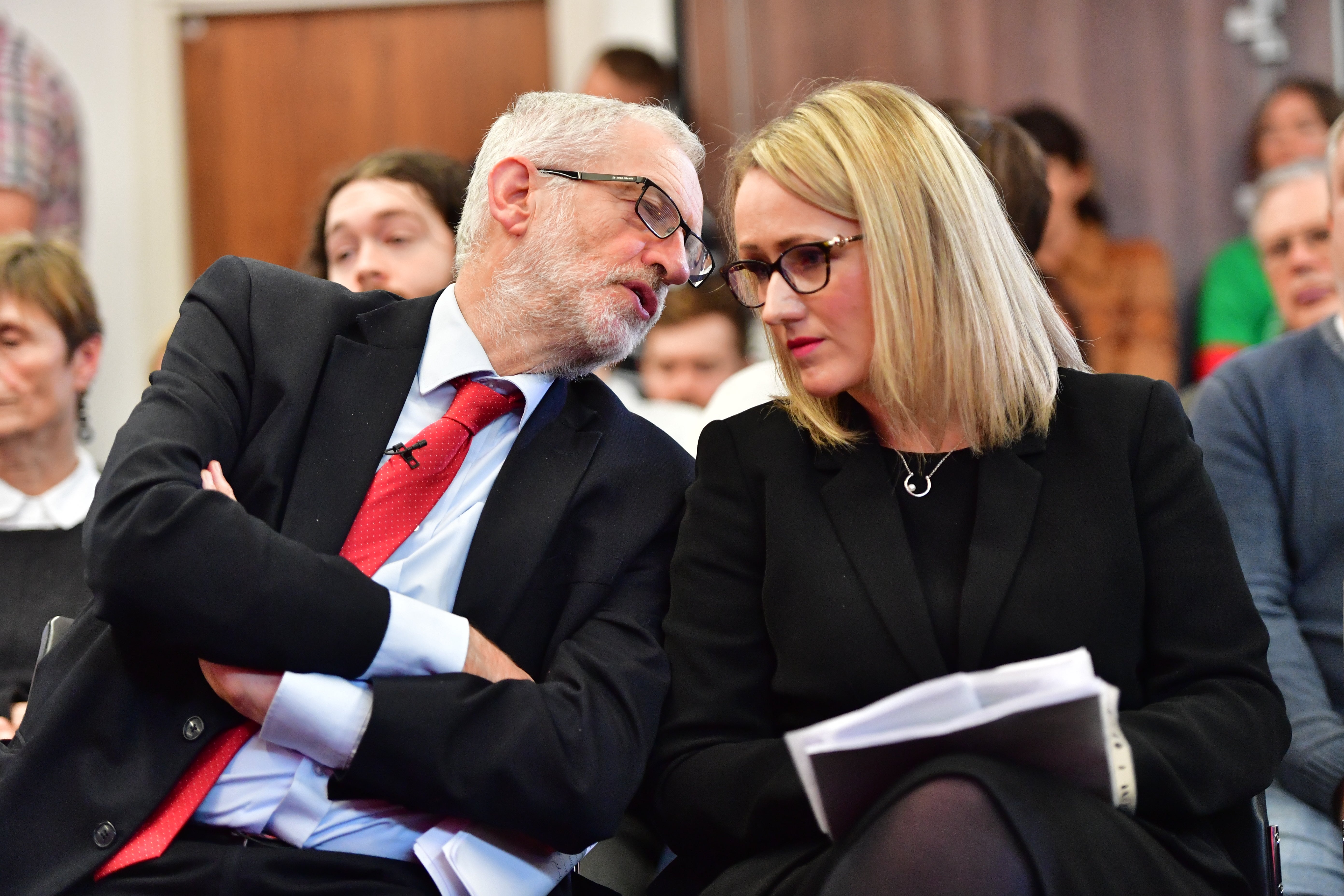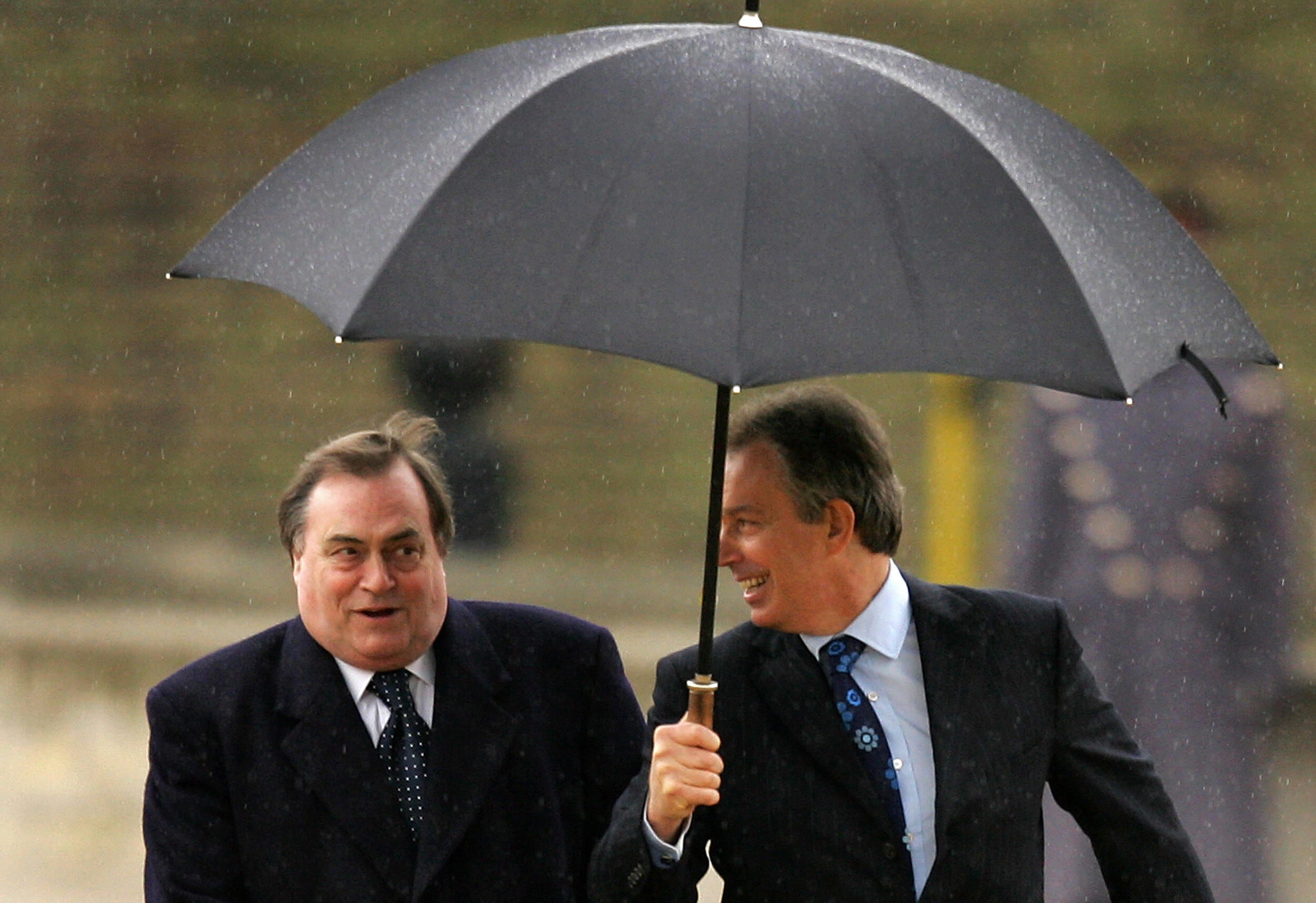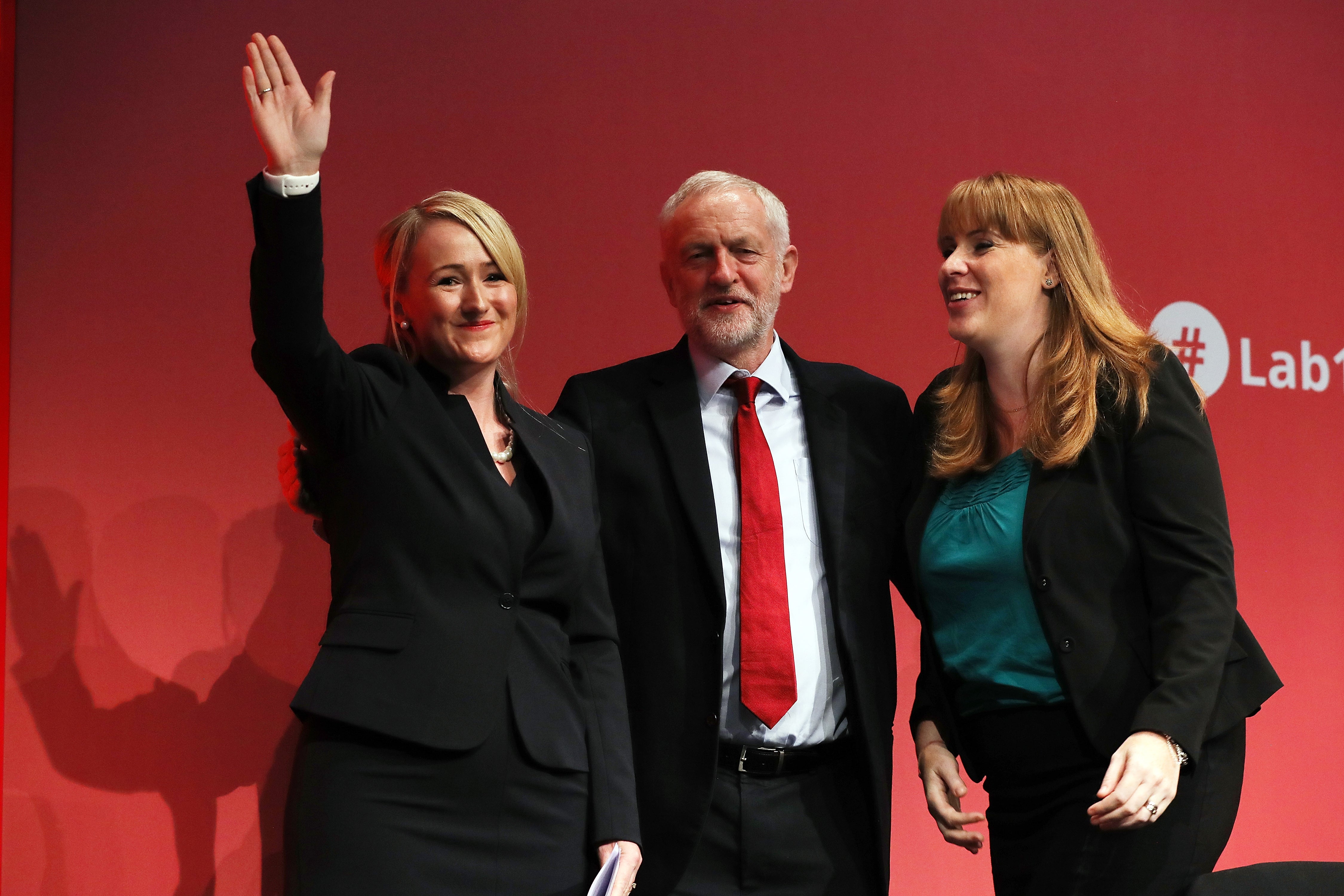The odd couple: What Keir Starmer really thinks about Angela Rayner
As rumours swirl over growing tensions between the prime minister and his deputy, Zoe Beaty takes a closer look at their relationship and hears why their differences might also be their strength


The election might be over, but there’s one struggle for power that isn’t going anywhere fast. As Labour stretches its legs in its first few weeks in office, Keir Starmer and his deputy, Angela Rayner, are a united front making a raft of announcements for the party’s new start. Outwardly, they’ve been a confident duo during a highly pressured couple of weeks. Peek just behind the curtain, however, and there are hints of a different story unfolding.
Last weekend, reports began to suggest that Rayner is already being “frozen out” of key party decisions, with “tensions bubbling under the surface”. She’s being “unfairly stripped of responsibilities” behind the scenes, according to speculation, and her authority is being undermined, after a flagship policy she has spearheaded – the new deal for working people – was handed to business secretary Jonathan Reynolds.
As these reports appeared, many put them down to mischief-making by those in the Tory camp who know that Rayner is a valuable asset for the Reform-leaning red wall. But equally, anyone who is close to the inner workings of Labour will know that Starmer can be prone to paranoia, and his inner circle of trust is kept very tight.
So, is Starmer keeping his popular deputy at a safe distance? While it is early days for the new prime minister’s team – who, most agree, have hit the ground running – the idea is not beyond the realms of possibility. Starmer and Rayner’s bumpy history is now under the ultimate spotlight, and lurking just out of view is Rachel Reeves, the first female chancellor, whose close relationship with Starmer adds a layer of complexity to the entire set-up.

Reeves certainly makes more sense as a trusted co-pilot – Starmer’s stoic and measured demeanour appears to complement the character of Reeves, who was once (somewhat unfairly) called “boring snoring” by Ian Katz following an appearance on Newsnight. She herself admitted to The Guardian: “If you want cartwheels, I’m not your person,” and for steady Starmer, that certainly provides familiar comfort: Reeves, unlike Rayner, is happy to play a straight game, where details are everything and messy surprises are few and far between.
Conversely, and in the best way possible, Rayner has never been containable. Given that Starmer has often been described as lacking passion and personality, this makes for an undeniably odd political coupling. In the past, the friction it creates has led to well-publicised fallings out, notably in 2021, when Starmer attempted to demote Rayner during a reshuffle. It backfired spectacularly. She fought back, and gained new roles and responsibilities, more support, and more power.
It was a similar story last September. Rayner was promoted to shadow deputy prime minister, but it seemed she was softly sidelined by Starmer in the process, which was perhaps the beginning of the tricky balancing act of appeasement between them. What could throw that off is Rayner’s bold attitude, her ability to speak her mind, and her reluctance to back down.
Starmer got a taste of this when she almost unravelled his Labour rebrand in 2021. She was caught calling senior Tories “scum” at a fringe event during the party conference – and then said she would not apologise until the then prime minister, Boris Johnson, apologised for being “racist, homophobic and sexist”.
“I’ll always stand up for what I think is the right thing to do morally, and if that costs me, so what?” she said at the time. “Because, at the end of the day, I’m already punching above my gene pool ... you can’t own me.” Her fearlessness has made her a compelling public figure, especially in a world where career politicians are often so terrified to go off script that they end up saying little that connects with an audience beyond Westminster. So, does this make her a loose cannon in Starmer’s cabinet? Or the key to the success of his leadership?

While Starmer ran a meticulously clean election campaign, it was Rayner who made the necessary public statements on the Israel-Hamas conflict, and who publicly stood up for Diane Abbott. She also has the power of likeability, often across the political divide, which Starmer struggles with despite his best efforts.
While people unfairly mock Starmer’s “son of a toolmaker” narrative, Angela’s backstory of growing up as a carer for her bipolar mother on one of Stockport’s roughest estates, and subsequent scrappy climb to the top of the party after becoming a mother at 16, feels compelling and important. Few would deny she has grit in spades, as she has battled a vicious combination of misogyny and classism; people have openly mocked everything from her accent to her dress sense, from inside as well as outside her own party.
Coupled with her background in trade unions, this means she is seen as authentically representative of those who have long felt neglected and unrepresented by the Labour Party, making her an asset but also a threat – and one that Starmer is aware of.
When Starmer and Rayner put on a fully united front, they are a formidable team. During “Beergate”, Rayner stood in solidarity with Starmer after Conservative MPs made complaints to Durham Constabulary about an alleged breach of lockdown. It was a good look for the party.
In light of this, Rayner has unsurprisingly drawn many comparisons with John Prescott – which, given that she has more or less exactly the same job (and working-class credentials) as Prescott had during the New Labour government, bear a lot of truth, according to The Independent’s chief political commentator (and Tony Blair’s biographer) John Rentoul. On the general election campaign trail, she even promised not to “do a Prezza” and repeat the mistakes of Blair’s deputy – who, during the run-up to the 2001 election, punched a voter who had thrown an egg in his face.
Now it looks as though Rayner will be just as vital to Starmer’s service-led politics as Prescott’s “old Labour” down-to-earth image was for Blair. That is, except for a couple of crucial elements, Rentoul says. “Tony Blair got on quite well with John Prescott. Blair obviously had to manage the occasional explosions when Prescott felt excluded. The thing about Blair is that he didn’t think that Prescott was after his job.”
Starmer is well aware, as is everyone else, that Rayner has been vocal about her ambitions for the role – and Reeves and Wes Streeting aren’t far behind. Rayner decided not to stand in the 2020 leadership election, instead supporting her longtime friend and former flatmate Rebecca Long-Bailey – crucially, against Starmer. Both she and Long-Bailey were promoted under Jeremy Corbyn, and while there were tensions there, too, many say her face fits more naturally in Corbynite circles than among the intelligentsia of Camden and Kentish Town, with whom Starmer seems more comfortable.

As the Labour Party gets stuck into the business of government, there will undoubtedly be potential for explosions. But, while Rayner’s brand is firmly rooted in sticking up for the working man and woman, there are points where she seems more on the right of the party than the hard left. Starmer knows that, redirected, her energy and chutzpah have the potential to reap a lot of power for both of them. Because it’s not only Starmer who is fearful of what Rayner can do.
“Back when Boris was ahead in the polls and it looked as though they were in a fairly secure position, the Conservatives’ biggest fear was Angela Rayner becoming leader,” one Westminster insider explains. “They thought that Keir was going to be forced out, and he came close. People forget that he was one narrow win of a by-election away from resigning. And amongst some of the Conservatives, the biggest worry was that Angela would win – because they hadn’t really got anybody who could compete with her.”
In the lead-up to this year’s election, the attacks over the sale of Rayner’s council house and rows over capital gains tax were called out by many as a smear campaign coordinated by the Tories because of their belief that she was crucial to Labour’s success at the polls. She will also be key to Labour’s success in parliament, as the party prepares to make some tough decisions on cuts and spending.
Used in the right way, their differences mean that Starmer and Rayner could essentially “fill in the gaps” for each other – a sort of yin and yang arrangement. Politically, that does seem to be the case. Rayner manages to cut a unique position in support of Blair’s government, often praising Sure Start – an initiative that she says helped to “break the cycle” of poverty and give her son, whom she had at 16, a better start in life – while Starmer is more to the left than he gives the impression of being. His background is more authentically working class than people give him credit for, which makes him more similar to Rayner on a personal level than people might assume.
When that public image is whole, their reach is far wider than either could yield alone. Right now, Labour needs to maintain Starmer’s appeasement of the centre and centre-right in order to continue to hold the Tories at bay – and leave Rayner’s voice unencumbered. Starmer’s guard might be up when it comes to Rayner – but, especially in the eyes of an electorate that is tired of infighting, the best move he could make would be to pull down the drawbridge and show what a confident leader he is by having confidence in her.
There could be chaos ahead. Luckily for the prime minister, Rayner knows all too well how to handle that.






Join our commenting forum
Join thought-provoking conversations, follow other Independent readers and see their replies
Comments